GL fandom drama has become a familiar term for anyone following the world of Asian girls’ love entertainment. But when fiction starts to feel too real, even love stories can spark obsession instead of support.

The genre has quickly become a global hit, attracting passionate fans from all over the world who support their favorite couples. What often starts as admiration for a fictional pair can soon turn into a deep emotional connection. Sometimes, the line between fantasy and reality begins to fade.
At first, it looks like glowing edits, matching outfits, and charming interviews. But behind the scenes, there is a carefully planned performance that goes beyond the script.
These actresses are like any other actors. They step into their roles during filming and step out when it ends. Yet in the GL and BL world, leaving the spotlight is rarely that simple.
Fans don’t just love the characters. Many also fall for the idea that the actresses are a real couple. This mix of feelings adds another layer to the growing GL fandom drama. It creates expectations that are hard to meet and blurs the line between fiction and real life.
This raises a key question: how well can we separate the actor from the character? Or more importantly, do we want to?
Today, parasocial relationships are common. Some fans struggle to see interactions as just part of the show. Every look and gesture often feels real.
In this article, we will explore the complex bond between fans, actresses, and the entertainment industry. We’ll also see how fun shipping can turn into obsession or toxic behavior. Most importantly, we’ll think about what it means to be a responsible fan in a world built on stories, illusion, and feelings.
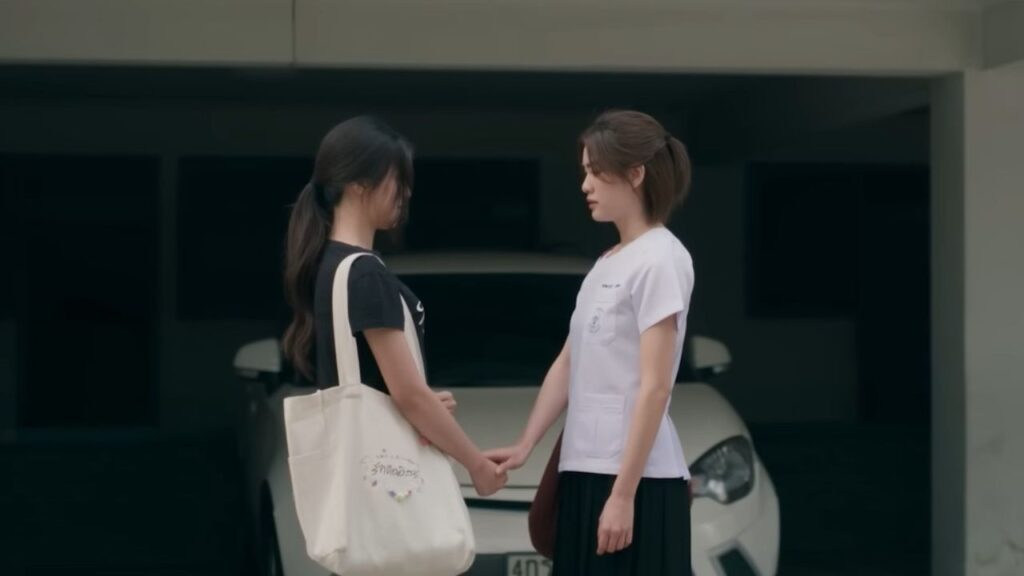
Table of Contents
What Is Shipping and How It Works in Asian GL/BL
The term shipping comes from the word relationship. It means when fans imagine or support a romantic pairing between characters or sometimes even celebrities. While shipping has long been part of fandom culture, it has become much more intense in Asian GL and BL entertainment scenes.
In Asian girls’ love series, shipping often goes beyond what happens on screen. Fans don’t just cheer for the fictional couple during episodes. They stay emotionally connected through a steady stream of content.
This content includes fan meetings, live streams, behind-the-scenes videos, games, joint interviews, and coordinated social media posts. Together, these create a feeling that the romance is ongoing and real, blurring the line between fiction and reality.
In contrast, Western GL series usually keep a clearer boundary between actors and characters. Fans enjoy seeing co-stars interact during interviews or panels, but those moments feel casual and are not part of a big marketing plan. The approach is more natural and less pressured.
What makes Asian shipping culture even more complex is the role of entertainment companies. Many studios actively promote romantic pairings as part of their brand.
They don’t just sell a story; they sell the idea of a real relationship. This builds strong emotional loyalty among fans but can also trap actresses in roles that last far beyond filming.
When shipping becomes central to a show’s promotion, it creates the perfect conditions for GL fandom drama. Fans start to expect real-life proof of their fantasies. At the same time, actresses face pressure to keep up the romantic image, even when it no longer benefits them personally or professionally.
As fans become more invested, it gets harder to separate acting from real life. This also makes it tough for actresses to keep their privacy.
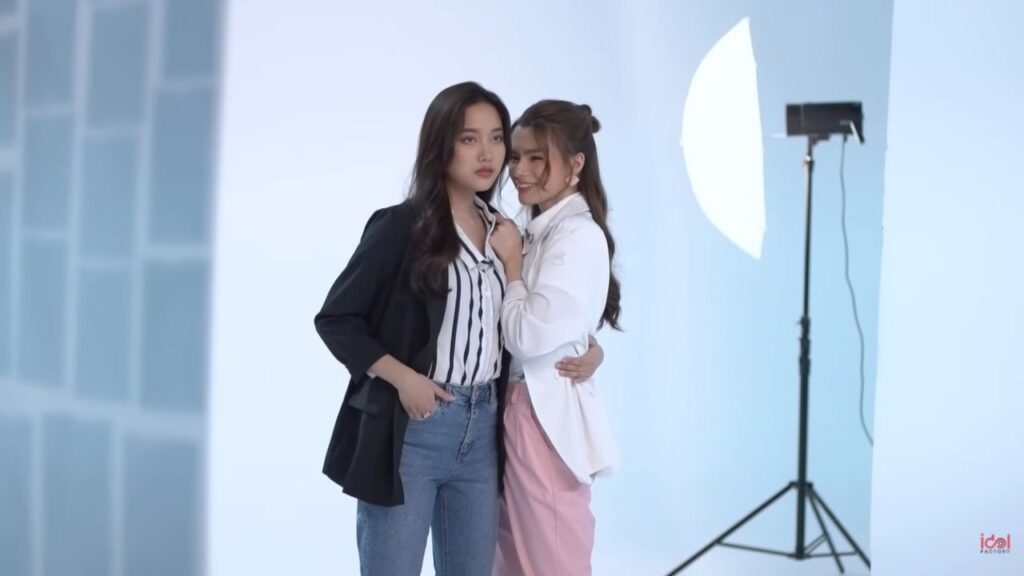
The GL/BL Industry as a Product: Actors as Merchandise
In GL and BL entertainment, actors are seen as more than just performers. The industry packages, markets, and presents them like products.
When a fictional couple becomes popular, producers expect the actors to keep that relationship going off-screen. This extends the illusion of romance into real life.
This illusion doesn’t happen by accident. Production companies, managers, and agencies shape these expectations carefully. They use public appearances, brand deals, live interviews, and planned social media posts to keep fans believing in the pairing.
As the marketing goes on, the actors become part of a long-term plan. Their job is no longer just to act well on screen. They also have to sell the idea of real-life romance, chemistry, and connection. These feelings turn into products to be sold.
To stay relevant, many actors feel pressured to act like a couple even after filming ends. Whether or not they are close in real life, they must appear affectionate or connected in public. This creates constant pressure to perform, not only on set but in everyday life.
Behind this polished image, real emotional and mental effects start to show. When personal boundaries blur and actors lose space to be themselves, exhaustion and frustration often follow.
Some actors speak out or step away. Others stay quiet, worried that breaking the illusion might hurt their careers.
This cycle feeds much of the GL fandom drama. The more actors are treated like products, the less control they have. When reality breaks through the illusion, it often leads to fan disappointment, confusion, and sometimes toxic backlash.

Toxicity in Fandom: The Dark Side of Shipping
There is a thin line between passion and obsession, especially in GL and BL fandoms.
Most fans enjoy these stories in a fun, respectful way. But a small, vocal group sometimes crosses the line. When that happens, shipping stops being fun and starts causing harm.
Toxic behavior can take many forms. Some fans closely watch actresses’ personal lives. They speculate endlessly or invade privacy looking for “proof” to support their beliefs.
Others go further. They harass actors online, attacking them or anyone who questions their favorite ship.
In extreme cases, fans turn against the people they once supported. For example, if an actor works with a new co-star or doesn’t act “loving enough” at fan events, backlash can come fast.
A well-known case is Freen and Becky. They were a top GL pairing but chose to reduce fan service at public events. Many fans felt shocked and disappointed.
Their choice followed growing discomfort with obsessive shipping, rumors, and lost personal boundaries.
This shows how quickly GL fandom drama can spiral and how harmful it becomes when fans confuse fantasy with reality.
Toxicity hurts not only actors but the entire fan community. New fans may feel pressured to join the drama, while longtime fans often feel disappointed or pushed away.
Meanwhile, companies face a tough balancing act. They must protect their talent while keeping fans engaged.
At the core of this issue is a bigger question: why do some fans struggle to let go of the illusion? Perhaps shipping offers comfort, connection, and magic in a chaotic world. But when desire turns into control, both fandom and actors suffer.
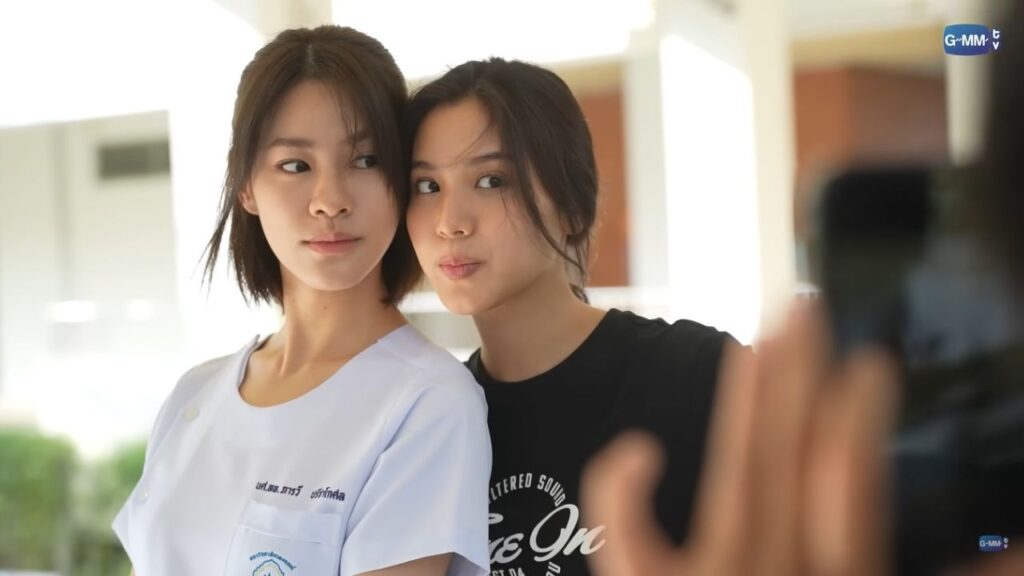
The Role of Companies and Fans in Sustaining the Problem
The connection between fans and actors in GL and BL media often feels very strong. However, it is not always as natural as it seems. Many times, what looks like real chemistry is carefully planned by marketing teams.
Entertainment companies know how to sell a story. They understand the emotional pull of a popular romantic pairing and use it to create excitement. Through interviews, fan meetings, and exclusive behind-the-scenes content, they purposely blur the line between fiction and reality.
This strategy keeps fans emotionally invested and very engaged. But it also puts a lot of pressure on the actors. They must meet fans’ expectations while keeping up the illusion.
For example, when an actress becomes famous because of a ship, she feels pressure to protect that image. She might hide real relationships, limit contact with other co-stars, and always act close to her on-screen partner.
All of this supports a fantasy that brings attention, merchandise sales, and sponsorship deals.
This approach feeds the cycle of GL fandom drama. As fans grow attached, they expect more than actors can really give. They may believe the relationship is real or feel entitled to see it become real. When the truth does not match these hopes, backlash often follows.
At this point, companies need to act responsibly. If they profit from shipping, they should also protect the actors who make it happen. That means giving performers more control over their public image and careers, instead of treating them like marketing tools.
Fans also have an important role. Enjoying content mindfully means appreciating the performance without demanding access to actors’ private lives. It means knowing where fiction ends and respecting that boundary.
By doing this, the community can grow healthier and more respectful, avoiding unnecessary GL fandom drama.
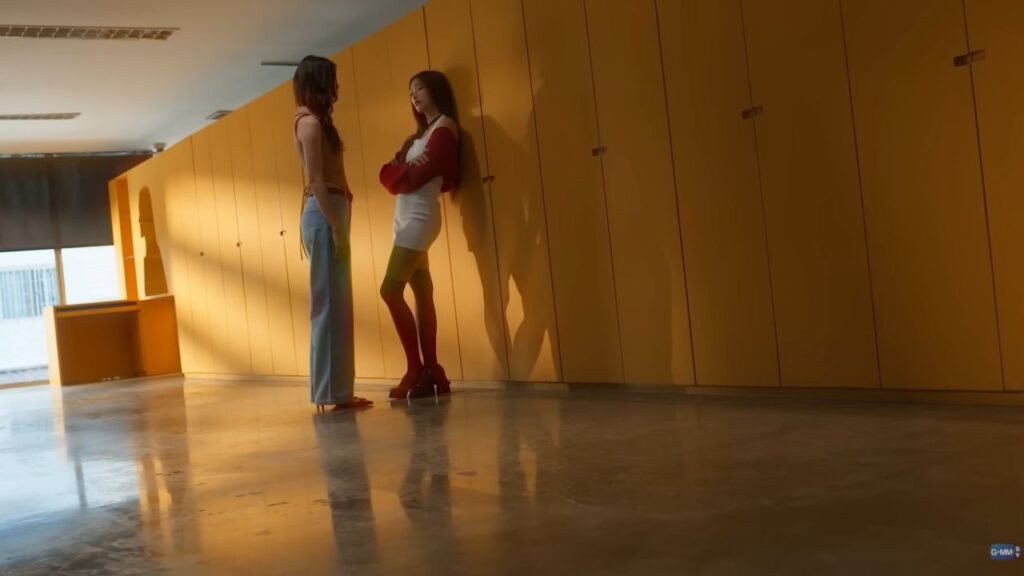
Reflections on the Future of the GL/BL Industry and Its Fandoms
As the GL and BL industries keep growing, new chances arise to change how fans, actors, and producers interact. This growth lets us rethink old habits and find healthier ways to tell stories.
For example, projects like Girl Rules and Four Elements are already leading the way. These series try flexible pairings and offer more creative freedom. By introducing new types of relationships and casting choices, they show what a more diverse and balanced future might look like.
Cutting back on intense fan service may feel risky for some production teams. But it also opens the door to long-term success. Letting actors grow beyond one pairing or even step outside the genre can help stop the emotional burnout that comes with constant public appearances.
More creative freedom leads to better art and more respect for the people behind the roles.
Still, the pressure to stay visible and popular stays strong. Social media adds to this pressure, where likes, shares, and viral clips often decide what gets attention. This kind of environment pushes quick reactions and can make small moments seem bigger than they are.
Because of this, even casual moments between actors can cause rumors, backlash, or controversy. Without clear limits and good moderation, talks can quickly get out of control. This is one way GL fandom drama keeps growing.
Looking ahead, the real challenge is finding balance. How can producers give fans the romance and chemistry they enjoy while also protecting the mental health of actors? This change starts with shifting the conversation.
It’s not about taking away what makes the fandom fun. Instead, it’s about evolving so fans, actors, and creators can all enjoy the space in a safer and more lasting way.
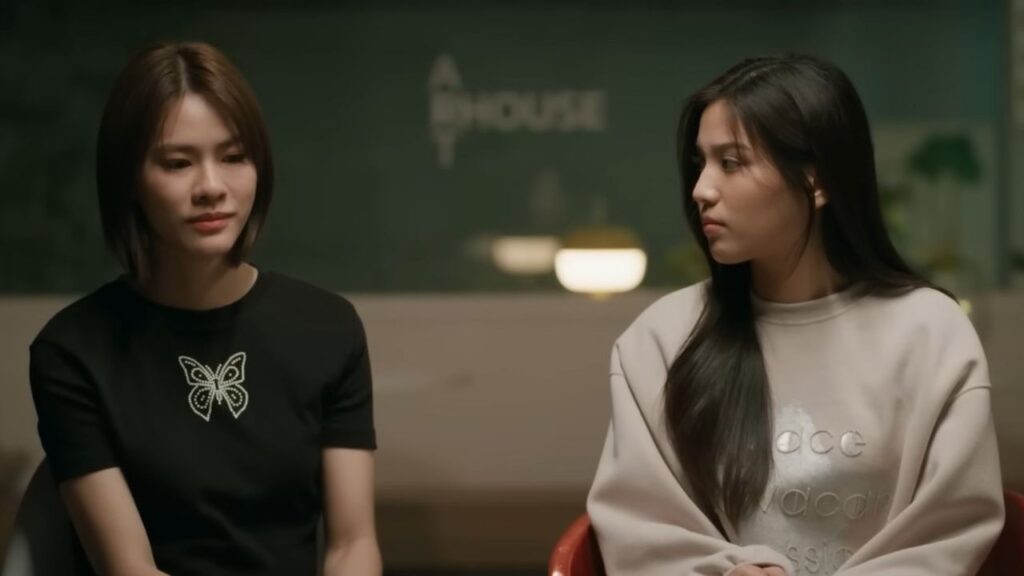
A Call for Fan Awareness
Before we dive headfirst into our favorite pairings and glowing interviews, it is important to take a deep breath and maybe even a few anti-delulu pills.
The world of GL and BL content is magical, fun, and often very emotional. But it is still fiction. The people who bring these stories to life are not their characters. They are real people with their own needs, boundaries, and truths.
It’s easy to get caught up in a powerful scene or a perfect fan edit and forget that actors are professionals doing a job. They might smile, joke, and perform fan service at events, but that doesn’t mean we truly know who they are in private. Nor do we have the right to demand access or answers.
Sadly, GL fandom drama often begins when fans mix up fantasy and reality. It happens when every look is read as a secret message or when distance feels like a betrayal.
These wrong ideas cause stress not just for the actors but for the whole fan community. If we truly care about the performers, respect and empathy must come first.
So, how can we support the stories and characters we love without forgetting what’s real? How can we enjoy the fantasy while respecting the real people who make it happen?
If you believe fandoms can grow in healthier, more respectful ways, please share this post. And feel free to leave a comment with your thoughts or experiences in GL or BL fan spaces.
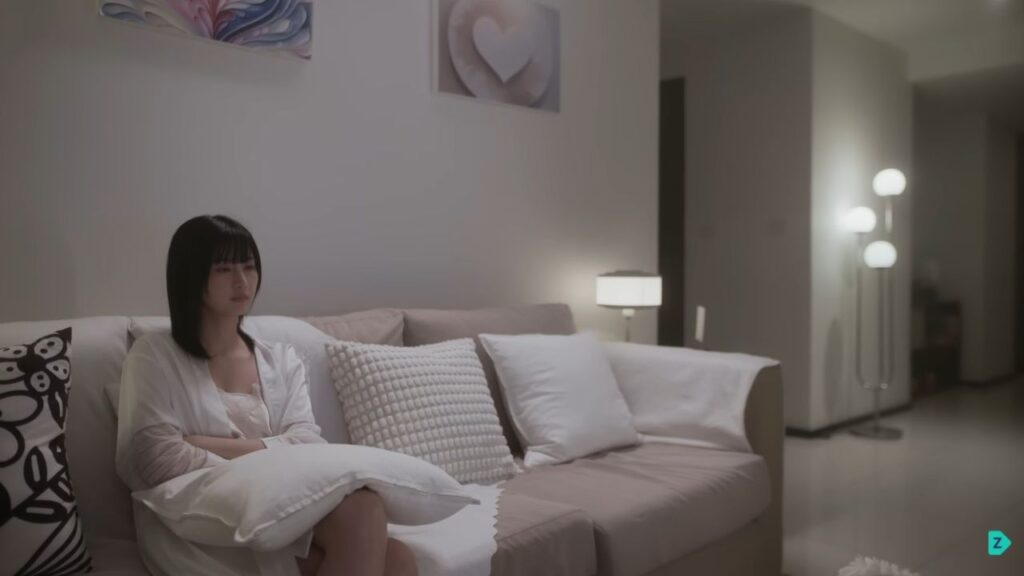
Featured image: Promotional still courtesy of Zense Entertainment.



